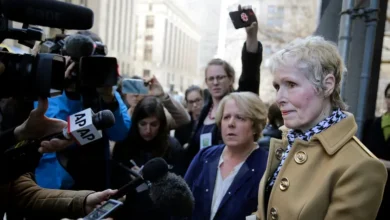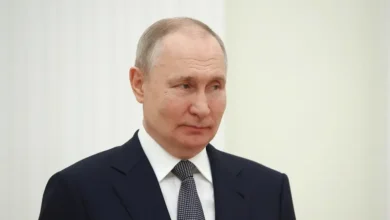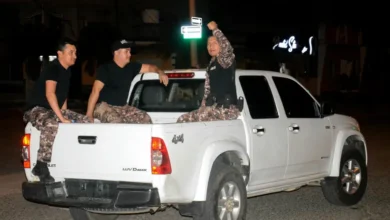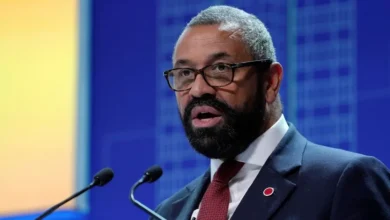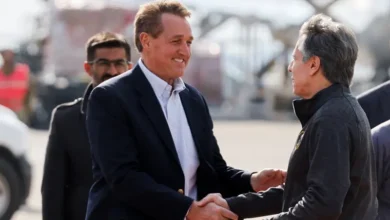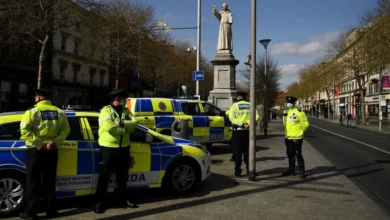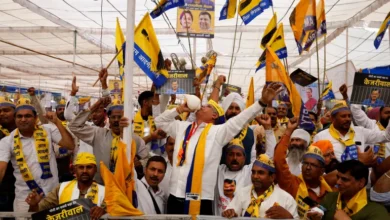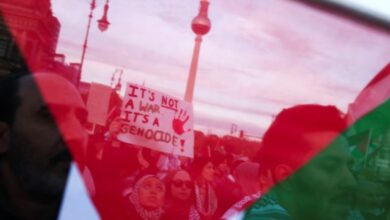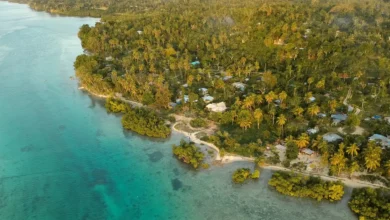‘Blood and sweat’: Myanmar resistance fights to overturn military coup
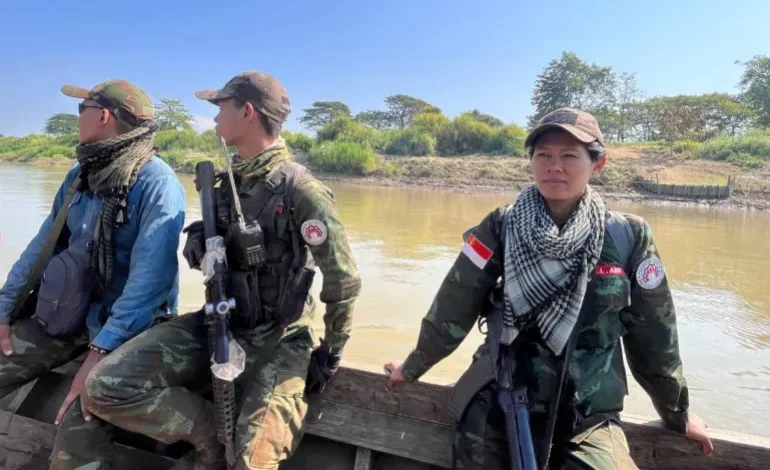
On February 1, 2021, a military coup in Myanmar sparked widespread nonviolent protests that quickly turned into an armed uprising after the military responded with brutal force.
Ethnic armed organisations fighting for autonomy along the country’s borders also joined the anti-coup groups in a war, which has since reached an unprecedented scale in Myanmar’s history.
Resistance forces share not only a common enemy but also a desire to overturn Myanmar’s military-dominated political system and establish a federal democracy that grants the right to self-determination for its ethnic minorities.
Al Jazeera spoke with four people who are part of the armed resistance.
They come from different backgrounds and are serving with different groups, but nonetheless share the same broad political goals, as well as a will to advance a more just and equitable society.
They are using their noms de guerre to protect their families from military reprisals.
Ma Wai, 32, Bamar People’s Liberation Army
The BPLA, established in April 2021 by activist and poet Maung Saungkha, is the country’s only armed resistance group identifying with the ethnic Bamar majority, and which specifically seeks to combat the dominant role of Bamar people in Myanmar society. Since late October, it has taken an active role in Operation 1027, a joint offensive that has brought major gains for anti-coup forces.
Ma Wai returned to her village in the Bago region from Dubai during the pandemic, with a plan to go back and resume her job as a chef at a four-star hotel once travel restrictions eased. Then the coup happened, and she joined street demonstrations instead.
Weeks later, soldiers and police were firing live rounds, and Ma Wai was tending to a wounded protester. “I saw the blood flowing with my own eyes,” she said. “The incident was so vivid and devastating that it will haunt me for the rest of my life.”
Soon, her peers were taking up arms in the jungle, but Ma Wai initially hesitated to join them. Her job in Dubai had provided the main source of income for her widowed mother and two younger brothers, who are both in their 20s, and she worried about how they would get by if she didn’t go back.
Still, her commitment to resisting the military won out, and she confided her decision to her brother the day before her planned departure for the jungle. “He told me, ‘Sister, you’re a girl, so don’t go. As a boy. I can do more, so I’m supposed to go,’” she recalled.
Ultimately, however, their mother gave them both her blessing. “[She] decided, ‘You both should go as you made this decision for the people,’” said Ma Wai.
In May of 2021, she and her brother enlisted in one of thousands of groups forming across the country at the time, commonly known as people’s defence forces (PDFs). Like many PDFs, theirs was based in the territory of the Karen National Union, Myanmar’s oldest ethnic armed organisation. Although it signed a ceasefire with the military in 2012, it has resumed its fight for self-determination since the coup, while also participating in the country’s wider pro-democracy struggle.
Ma Wai joined the resistance intending to fight until the end, but her plans soon began to falter. Her PDF’s leaders seemed not to have a clear plan for its recruits, who began returning to their towns and villages after completing the group’s 10-day military training.
“I knew that the training wasn’t enough for me to fight against the military, but when I thought about returning home, I didn’t want to go back either,” said Ma Wai. “I really wanted to connect with a group that could provide weapons and train us well.”
The opportunity came that August, through a chance encounter with BPLA leader Maung Saungkha. As he spoke about the group’s philosophy and approach, as well as its equal treatment of women and men, Ma Wai’s direction became clear. “I felt that he wasn’t talking like an election campaign, but expressing his determination, vision and mission,” she said. “I realised that this was the kind of group I wanted to join.”
Her brother came to the same decision, and soon after, they were climbing rugged mountains in the heavy rain and linking arms with their new comrades to cross rushing streams. When they reached their new camp, they underwent a training programme far more rigorous than the first – so much so that Ma Wai’s legs became stiff and swollen, and her trainers told her to seek medical attention.
Realising her limitations, she said, was even harder than enduring the ache in her legs. “The trainers didn’t allow me to continue even though I straightened up and tried to force myself,” she said. “It was the most painful moment for me.”
She later completed the training after receiving treatment for vitamin B12 deficiency and began serving in a logistical role to manage the distribution of rations to BPLA soldiers. A year later, she was transferred to the finance and support department, and now supervises the BPLA’s administration office.
Ma Wai estimates that while one-tenth of the BPLA’s members are female, women make up about a third of people serving in leadership roles. While Ma Wai said she hasn’t faced any discrimination as a woman, she acknowledged that she initially had to work extra hard to demonstrate her capabilities, especially to some of her male comrades.
“Sometimes … they looked at me as if I didn’t know anything, but that was in the early days,” she said. “When we worked together, they came to understand me more and appreciate my talent.”
She has also undergone a personal transformation, as she learns about the Myanmar military’s brutal history against the country’s ethnic minorities and reflects on her own identity as a member of the ethnic Bamar majority.
“In the past, I neglected to know about the [other] ethnic groups, their suffering and losses, and I acted like it wasn’t my business,” she said. “I also didn’t notice that I was privileged as a Bamar.”
Serving in the BPLA has also offered her the chance to study political theory. “Before this armed revolution, I called and shouted for federal democracy for our country in protests, but honestly, I didn’t really know why this system was important for our country or what federalism or democracy were,” she said. “I became aware of why Myanmar people are asking for it with their blood and sweat … If the political system is bad, I know how much the people of the country will be affected.”
Khun, 31, Karenni Nationalities Defence Forces
The Karenni Nationalities Defence Forces (KNDF) is a coalition of armed resistance groups in Myanmar’s southeastern Karenni State (also known as Kayah State). Peaceful for nearly a decade leading up to the coup, the state has since seen heavy fighting, which despite a major disparity in arms, has resulted in major gains for resistance forces. Since launching a new operation in November, they have been closing in on the state capital and coming nearer to liberating the entire state from military control.
A migrant worker in Malaysia until 2019, Khun returned to his village in Karenni State’s Demoso township at a time when opportunities for young people were opening up under the Aung San Suu Kyi-led semi-civilian government. The coup, however, crushed his optimism. “I lost all my dreams and felt depressed,” he said.

